From the beginning of April to the end of June, Historic Joy Kogawa House will offer creative writing workshops in both English and Spanish.
“You don’t have to be a Spanish native speaker to attend. If you feel comfortable with your knowledge of the language, please join us!” says Carmen Rodríguez, writer-in-residence and workshop facilitator.
Rodríguez is a Chilean-Canadian writer, educator, and journalist. She is the author of three books: Guerra prolongada / Protracted War, a volume of bilingual poetry; and a body to remember with, a short story collection; and Retribution, a novel.
and a body to remember with was a finalist for the Vancouver Book Awards, while De cuerpo entero, its Spanish counterpart, received a Mention of the Santiago Literary Awards. Retribution garnered second place in the “Best Popular Novel” category of the prestigious International Latino Book Awards in New York City. As well, it was published in Norway with the title of Chiles døtre, and its Spanish version, El desquite, is forthcoming.
In addition to creative writing workshops, Carmen Rodríguez will facilitate a “Meet the Author/Book-Club” series with writers Carol Shaben (Into the Abyss on April 10), Shaena Lambert (Radiance on May 8), and Duncan McCue (The Shoe Boy on June 12).
As of April 1, Rodríguez will be in residence and available for interviews and consultation. (Contact Ann-Marie Metten at ametten@kogawahouse.com)
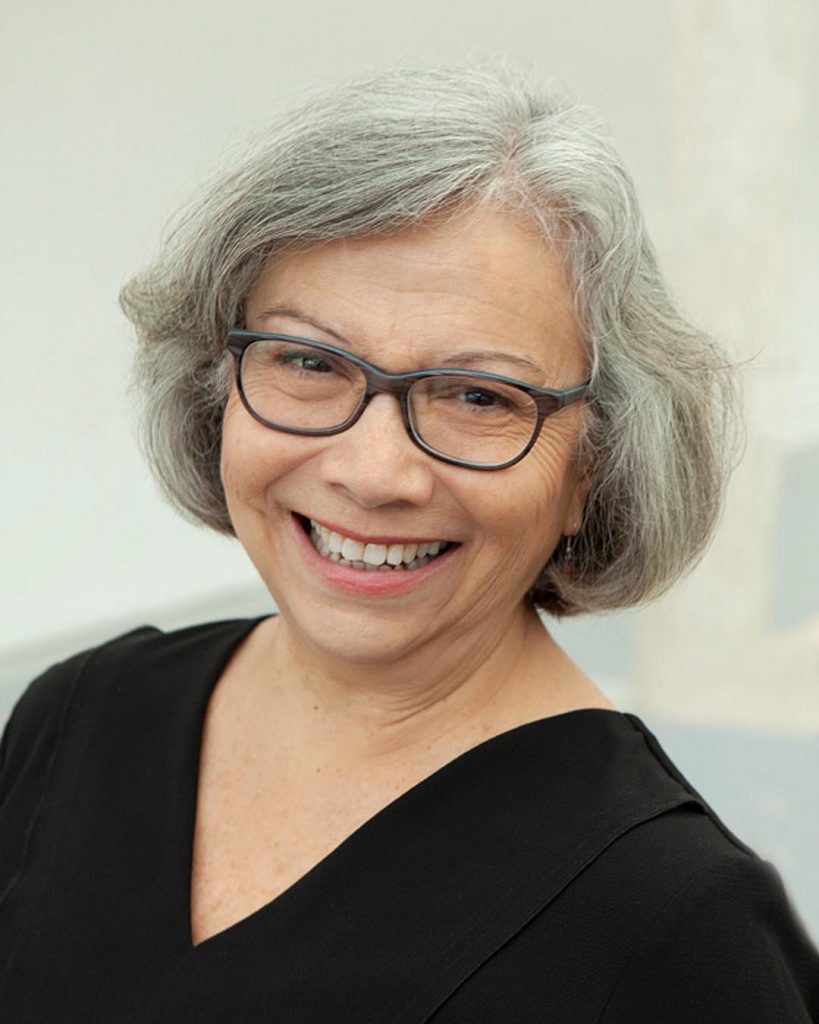
Carmen Rodríguez: Escritora en residencia
Writer in residence at Historic Joy Kogawa House
April 1 – June 30, 2017/ Abril 1 – Junio 30, 2017
“You don’t have to be a Spanish native speaker to attend. If you feel comfortable with your knowledge of the language, please join us!”
ESP: Oriunda de Valdivia, Chile, la escritora bilingüe, educadora y periodista Carmen Rodríguez llegó a Vancouver en 1974 como exiliada política de la dictadura de Augusto Pinochet.
Como educadora, Rodríguez se ha desempeñado como facilitadora, programadora, maestra y profesora en los campos de la literatura, los estudios culturales, la escritura creativa, la enseñanza de idiomas, la alfabetización de adultos, la educación popular y las ciencias de la educación. Estas labores las ha ejercido en una variedad de contextos: centros comunitarios, poblaciones marginales, comunidades aborígenes, escuelas y universidades. Entre 1989 y 2010 fue profesora en la Universidad Simon Fraser, primero en la Facultad de Educación y luego en el Programa de Estudios Latinoamericanos. Hacia el final de su carrera docente, también fue nombrada escritora en residencia y profesora adjunta del Departamento de Estudios Franceses, Hispánicos e Italianos de la Universidad de Columbia Británica.
Además, Rodríguez es la autora de numerosas publicaciones pedagógicas. Entre ellas cabe destacar Educating for Change: Community-Based/Student-Centred Literacy Programming with First Nations Adults, un libro acompañado de un video del mismo nombre. Este material fue creado en 1994 para prestar apoyo a los maestros de alfabetización en comunidades aborígenes y sigue siendo utilizado ampliamente a través de todo Canadá.
Como periodista, Carmen Rodríguez fue una de las fundadoras y miembro del comité editorial de la revista trimestral bilingüe Aquelarre, la cual se publicó en Vancouver entre 1989 y 1998. Entre 1990 y 2012 fue corresponsal en Vancouver de la sección latinoamericana de Radio Canadá Internacional.
En su capacidad como escritora, Rodríguez es la autora de tres libros: Guerra prolongada / Protracted War (1992), un volumen bilingüe de poesía; la colección de cuentos De cuerpo entero (1997); y Retribution, una novela (2011).
De cuerpo entero (1997) ganó una Mención del Premio Municipal de Literatura de Santiago, mientras que su versión en idioma inglés, and a body to remember with (1997), fue finalista de los “Vancouver Book Awards”. Retribution obtuvo el segundo lugar en la categoría “Best Popular Novel” de los prestigiosos “International Latino Book Awards” en la ciudad de Nueva York. Además, se publicó en Noruega con el título de Chiles døtre y El desquite, su versión en español, será lanzada próximamente en Cuba.
En la actualidad, Rodríguez está en el proceso de escribir una segunda novela: Atacama.
ENG: Bilingual writer, educator and journalist Carmen Rodríguez was born in Valdivia, Chile and came to Vancouver in 1974 as a political exile of the Augusto Pinochet dictatorship.
As an educator, Rodríguez has worked as a facilitator, programmer, teacher and professor in the fields of literature, cultural studies, creative writing, language instruction, adult literacy, popular education and educational sciences. She has practised this work in a variety of contexts: community centres, shanty towns, First Nations communities, schools and universities. Between 1989 and 2010 she taught at Simon Fraser University, first in the Faculty of Education and later in the Latin American Studies Program. In the latter part of her teaching career, she was also appointed Writer in Residence and Adjunct Professor at the Department of French, Hispanic and Italian Studies of the University of British Columbia.
As well, Carmen Rodríguez is the author of numerous educational publications. Worthy of mention is Educating for Change: Community-Based, Student-Centred Literacy Programming with First Nations Adults, a book accompanied of a video of the same name. This material was created in 1994 to offer support to literacy instructors in aboriginal communities and continues to be used widely across Canada.
As a journalist, Carmen Rodríguez was one of the founders and member of the editorial committee of Aquelarre, a bilingual quarterly magazine published in Vancouver between 1989 and 1998. Between 1999 and 2012, she was Vancouver correspondent for the Latin American section of Radio Canada International.
In her capacity as a writer, Rodríguez is the author of three books: Guerra prolongada / Protracted War (1992), a volume of bilingual poetry; and a body to remember with (1997), a short story collection; and Retribution (2011), a novel.
and a body to remember with was a finalist for the Vancouver Book Awards, while De cuerpo entero (1997), its Spanish counterpart, received a Mention (second place) of the Santiago Literary Awards. Retribution also garnered second place in the “Best Popular Novel” category of the prestigious International Latino Book Awards in New York City. As well, it was published in Norway with the title of Chiles døtre, and its Spanish version, El desquite, is forthcoming in Cuba.
Currently, Carmen Rodríguez is in the process of writing a second novel: Atacama.
Creative Writing Workshops/ Talleres de Escritura Creativa
Facilitator: Carmen Rodríguez, Writer-in-residence/ Facilitadora: Carmen Rodríguez, Escritora en residencia
TALLERES EN ESPAÑOL:
(Co-auspiciados por el Centro cultural latinoamericano de Vancouver, VLACC – Vancouver Latin American Cultural Centre Society):
1.) DEL SILENCIO DE LA FOTOGRAFÍA AL CLAMOR DE LA PALABRA*
Martes 25 de abril, 7:00 – 9:00 p.m.
Unas pocas fotografías personales te servirán de punto de partida para la creación de una serie de breves textos interconectados, los que se convertirán en un relato sobre episodios significativos en tu vida. Durante este proceso, mejorarás tus conocimientos de descripción y narración.
2.) “LA POESÍA ES COMO EL PAN; DE TODOS” (Roque Dalton)*
Martes 23 de mayo, 7:00 – 9:00 p.m.
¡Ven a compartir el pan con nosotros! A través de ejercicios guiados, incluyendo la emulación de consumados poetas canadienses, tendrás la oportunidad de orquestar tus sentidos, tu intelecto, tus emociones y tus palabras con el fin de producir una suite de tus propios poemas.
*En la primera parte del taller, tomarás parte en los ejercicios de grupo y trabajarás en tu escritura individual. En la segunda, leerás tu trabajo y recibirás opiniones del resto de los participantes. Juntos, delinearemos pautas básicas para asegurarnos de que todos podamos trabajar en un ambiente constructivo, respetuoso y seguro.
WORKSHOPS IN ENGLISH:
1.) FROM THE SILENCE OF PHOTOGRAPHS TO THE CLAMOUR OF WORDS*
Thurs. May 18, 7:00 – 9:00 p.m.
Using a few personal photographs as a springboard, you will create a series of interconnected short texts, which will result in a mini-memoir about meaningful episodes in your life. In the process, you will improve your skills of description and narration.
2.)“POETRY, LIKE BREAD, IS FOR EVERYONE” (Roque Dalton)*
Thurs., Jun. 22, 7:00 – 9:00 p.m.
Come break bread with us! Through guided exercises, including the emulation of accomplished Canadian poets, you will have the opportunity to orchestrate your senses, intellect, emotions, and words to produce a suite of your own poems.
*In the first part of the workshop, you will participate in group exercises and engage in individual writing. In the second part, you will read your work and receive feedback from the rest of the participants. We will draw some basic guidelines together, so as to ensure that everyone can work in a constructive, respectful, and safe environment.
Consultas Individuales/ Individual Consultations
ESP: Carmen Rodríguez ofrecerá consultas individuales a escritores en ciernes. Para mayor información y para hacer una cita, por favor mande una consulta a residency@kogawahouse.com.
ENG: Carmen Rodríguez will offer individual consultations with aspiring writers. For further information and to book an appointment, please send a query to residency@kogawahouse.com.
Read the Book, Meet the Author, and Engage in a Stimulating Discussion
In preparation for this series, read the assigned book and prepare to meet the author and talk about her or his book. During the first hour of the event, the author will do a short reading and answer your questions. In the second, Carmen will facilitate a discussion.
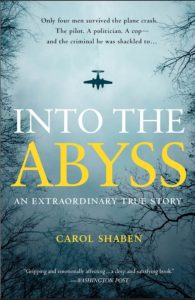
CAROL SHABEN – INTO THE ABYSS (Non-fiction)
Mon. Apr. 10 – 7:00 – 9:00 p.m.
INTO THE ABYSS: Larry Shaben, Carol Shaben’s father and the first Muslim cabinet minister in Canada, was one of the four survivors of a deadly commuter plane crash in northern Alberta in 1984. Twenty-eight years later, Carol published Into the Abyss, a riveting account of the aftermath of the crash and a compassionate examination of lives changed forever.
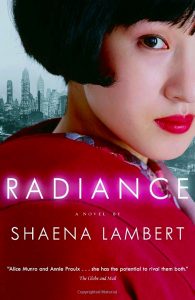
SHAENA LAMBERT – RADIANCE (A novel)
Mon. May 8 – 7:00 – 9:00 p.m.
RADIANCE: Keiko, a survivor of the atomic bomb that destroyed Hiroshima and left her with disfiguring radiation scars, is chosen from hundreds of young women to receive plastic surgery in the United States. Radiance does not only tell Keiko’s story, but also Daisy’s, her “house mother,” while exposing the tensions and contradictions that riddled that country during the 1950s.
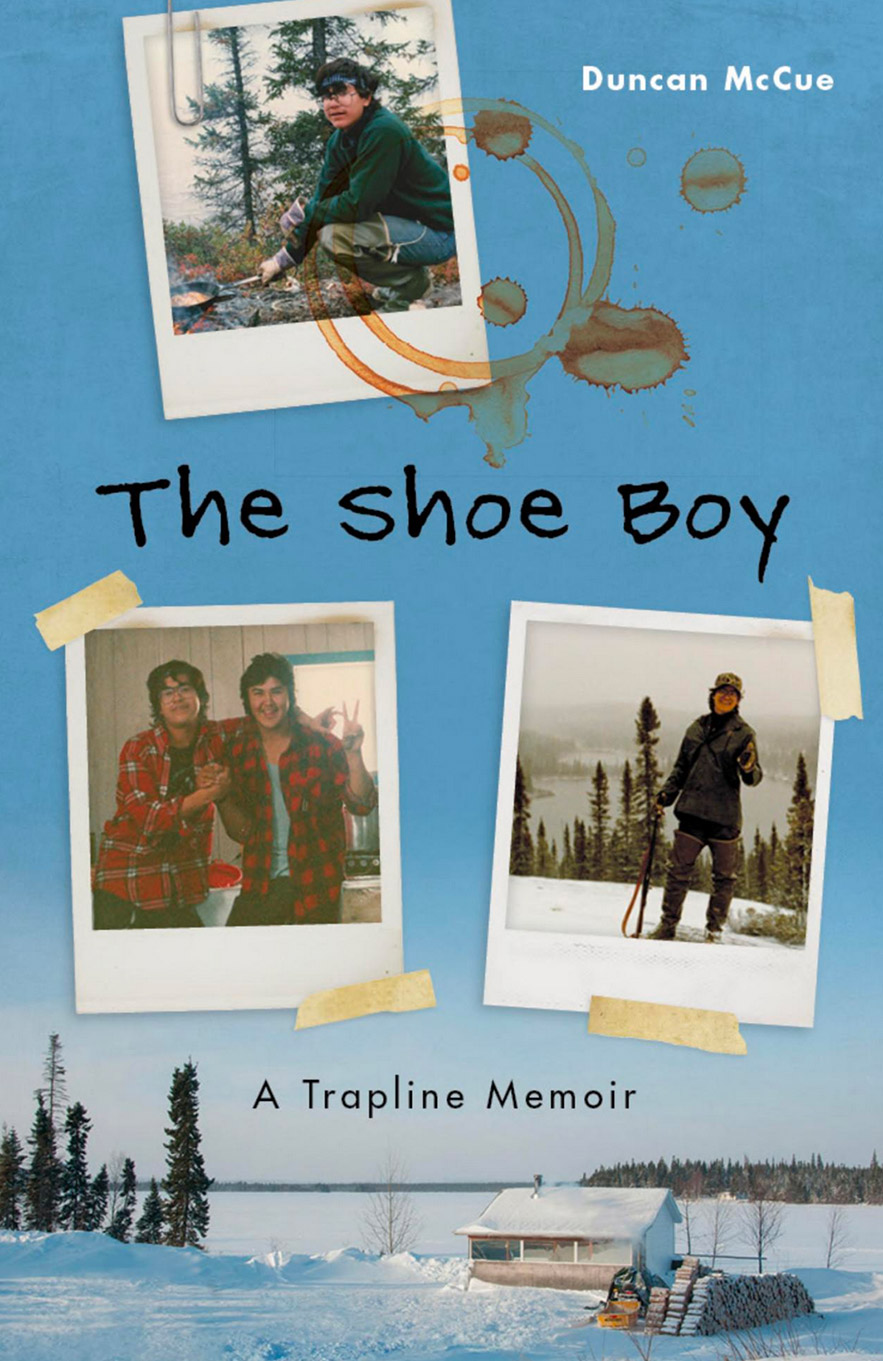
DUNCAN McCUE – THE SHOE BOY (Memoir)
Mon. Jun. 12 – 7:00 – 9:00 p.m.
In this coming-of-age memoir, Duncan McCue, an urban Anishinaabe, tells the story of the five months he spent with a Cree family in a hunting cabin on James Bay at age seventeen. Funny and evocative, The Shoe Boy explores issues of identity, traditional ways of life, and the connection of Indigenous peoples with the land, among others.
¡FIESTA!
Co-auspiciada por VLACC / Co-sponsored by VLACC
Thursday, June 29 / Jueves 29 de junio
7:00-9:00 p.m.
¡Ven a disfrutar de una noche de empanadas chilenas, música y palabras!
Come and enjoy an evening of Chilean empanadas, music, and words!
Carmen Rodríguez dará término a su residencia con la lectura de un pequeño extracto de su nueva novela ATACAMA, a la cual pudo dedicarse sin interrupciones, gracias a la generosa asistencia de Historic Joy Kogawa House.
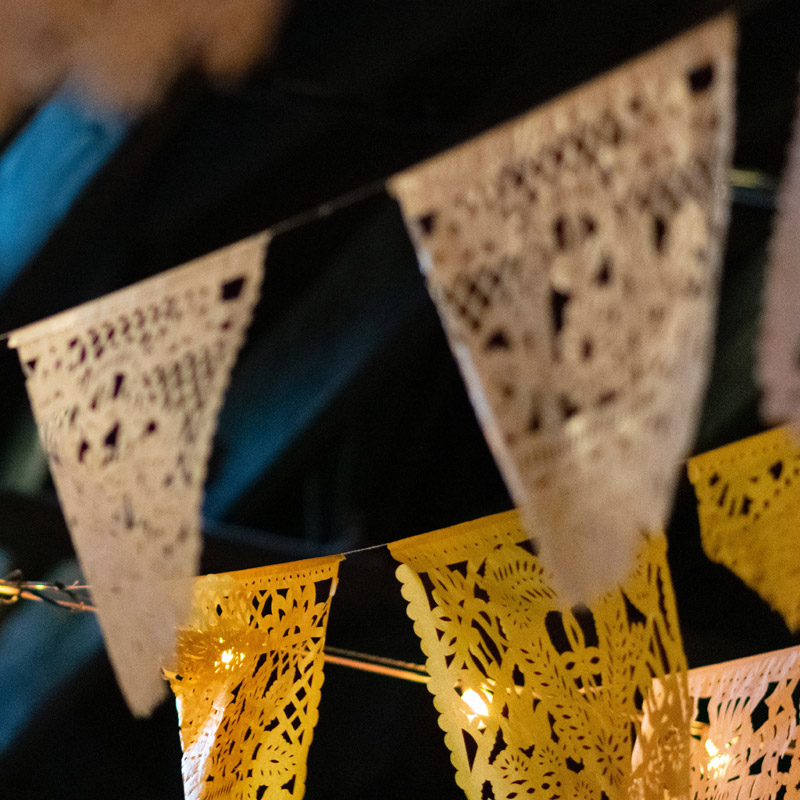
Algunos de los participantes en los talleres de escritura creativa facilitados por Carmen también leerán su trabajo.
Carmen Rodríguez will end her residency with the reading of a short excerpt from her new novel ATACAMA, to which she was able to dedicate uninterrupted time, thanks to the generous assistance of Historic Joy Kogawa House.
Some of the participants in the creative writing workshops facilitated by Carmen will also read from their work.
Possible only with the financial support of the Canada Council, B.C. Arts Council, and Frank H. Hori Foundation.

